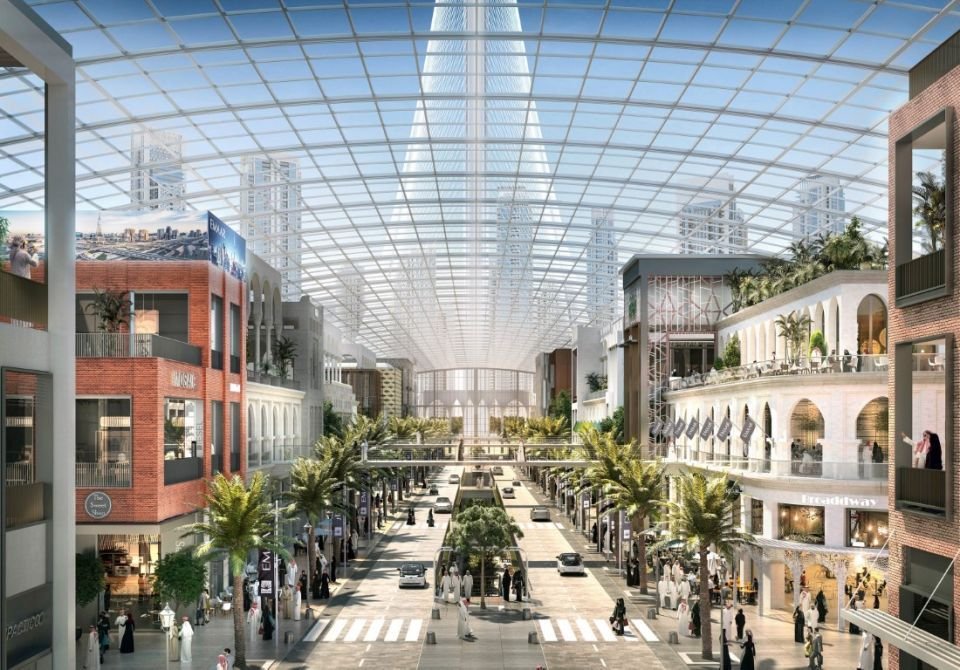It's become more clear than ever this year that climate change is very real and that we are already seeing the effects.
A new report by the Intergovernmental Panel on Climate Change (IPCC) released in October detailed how even just half a degree of rise in the world's temperature would result in severe, catastrophic effects.
As Business Insider's Kevin Loria summed up:
That half of a degree will make drought-prone regions much more likely to experience severe drought, and areas prone to heat waves or intense hurricanes will get more of those disasters, too.These factors could trigger huge migrations of people and mass extinctions of animals.
In short, the climate will get a lot less livable, particularly in places already vulnerable to high temperatures.
As I hung out in Dubai last month, it struck me that the city's severe climate and its adaptation to that climate was a good approximation of what I imagine living with the severe effects of climate change to be.
During Dubai's long summer, stretching from mid-April through October, temperatures make it unbearable to be outside for more than a few minutes. Temperatures are regularly around 105 degrees Fahrenheit (41 degrees Celsius) and have gone as high as 119 degrees Fahrenheit (48 degrees Celsius), with plenty of humidity.
The city's adaptation to that climate? A proliferation of interconnected climate-controlled spaces, including more than 65 malls, residential and office buildings with entire indoor cities attached, metros, and indoor parking lots.
For a certain social millieu – I'm talking native Emiratis and the wealthy expats with white-collar jobs – one could go entire days or weeks during the summer without stepping outside. You go from your air-conditioned apartment in a residential skyscraper to the indoor parking lot, and then drive to your office, park in the indoor lot, and head upstairs to the office skyscraper.
If you need to do grocery shopping or pick up a present, there are likely retail stores, grocery stores, or an entire retail complex attached to your office building or apartment building.
If you want to spend a Saturday out with your family, grab coffee with a colleague, or enjoy an "al fresco" dinner and a movie, you are likely doing it inside at The Dubai Mall, a US$2 billion complex with 1,200 stores, hundreds of restaurants, a movie theatre, a luxury hotel, an Olympic-size ice-skating rink, a virtual-reality theme park, and an aquarium.
Or, perhaps you'll visit one of Dubai's dozens of other megamalls with similar amenities that blur the line between mall and city block.
Meanwhile, for the hundreds of thousands of migrant workers in Dubai who aren't lucky enough to live in air-conditioned megacomplexes, Dubai can be a hellscape during the summer – just as the climate might be for the developing countries that will be hardest hit by the effects of climate change.
Dubai is getting so good at simulating the outdoors inside that its next megaproject is dedicated to just that.
Dubai Square, set to become the world's largest mall, is built around a four-lane "boulevard" that mimics a wide city street, a piazza, and an entertainment center for concerts and theatre shows. It will even have the Middle East's largest Chinatown.
"[In the UAE] the mall is a social space, not just a shopping space," Justin Thomas, an associate professor of psychology at Zayed University, wrote for The National in 2014.
"The mall is where three generations of the same family take an evening stroll; the mall is where the Abu Dhabi Readers (a book club) meet to discuss works of literature."
When you can't hang out in social spaces outside, whether it's due to a severe climate or pollution, you find indoor spaces to do so.
It's hard to say that's de-facto bad when such malls and climate-controlled spaces are providing livable spaces outside of the home in a city that desperately needs them. But there is a creeping feeling that something is lost when all public spaces exist solely so large corporations can make a profit.
If I was going to take a guess at where our hyper-consumerist world is heading in the event the world can't get its act together on climate change, I'd say it's going to look a lot like Dubai.
And Dubai, for its part, will have to keep adapting to its extreme climate. The Environment Agency Abu Dhabi found in a report last year that under its most severe climate change scenario, nearly all of Dubai would be underwater due to rising sea levels.

Comments
Post a Comment